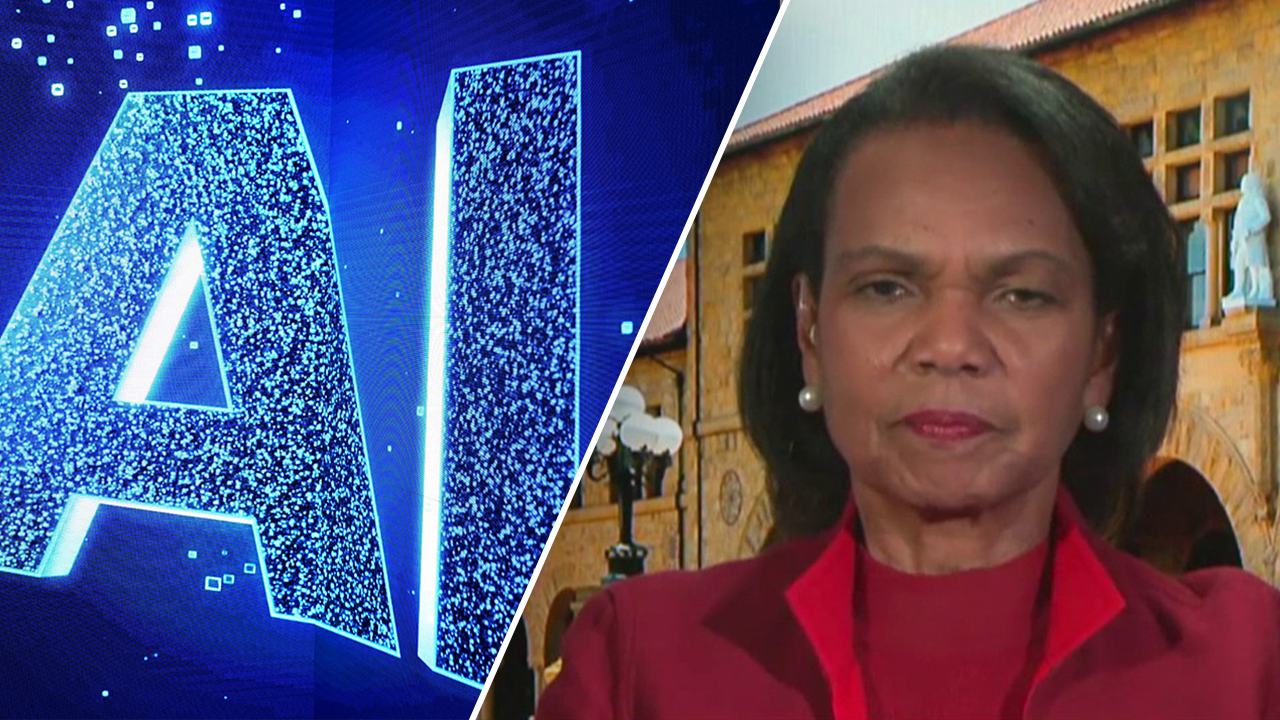Condoleezza Rice Urges U.S. to Outpace China in the AI Race
In a recent and thought-provoking address, former U.S. National Security Advisor Condoleezza Rice has made a compelling case for the United States to accelerate its efforts in artificial intelligence (AI) development, emphasizing the critical need to outpace China in this strategic technological race. Rice’s insights not only underline the importance of AI for national security but also its broader implications for global influence and economic competitiveness in the 21st century.
The Strategic Importance of AI
AI has emerged as one of the most transformative technologies of our time, with applications ranging from healthcare to finance, and even to national defense. The ability to harness AI effectively can determine the economic and military might of nations. In her address, Rice pointed out that AI is not just a technological tool; it is a strategic asset that can shape the future geopolitical landscape.
Rice highlighted that China has made significant investments in AI, aiming to lead the world in this domain by 2030. The implications of this are profound, as a leading position in AI could enable China to enhance its military capabilities, exert influence over global standards, and dominate key industries. Thus, the urgency for the U.S. to ramp up its AI initiatives cannot be overstated.
National Security Implications
The national security ramifications of AI development are manifold. As countries increasingly rely on AI for military applications, the race for dominance in AI becomes intertwined with national defense strategies. Rice emphasized that AI technologies can enhance decision-making processes, improve operational efficiency, and provide strategic advantages on the battlefield.
- Enhanced Surveillance: AI can analyze vast amounts of data from surveillance systems, providing real-time insights that can inform military decisions.
- Autonomous Systems: The development of drones and other autonomous systems powered by AI can change the face of warfare.
- Cybersecurity: AI can also play a vital role in identifying and mitigating cyber threats, which are increasingly sophisticated.
As Rice noted, failing to lead in AI could put the U.S. at a strategic disadvantage. The potential for adversaries to leverage AI for malicious purposes—such as cyberattacks or misinformation campaigns—makes it imperative for the U.S. to assert its leadership in AI research and development.
Economic Competitiveness
Beyond national security, AI development is crucial for maintaining economic competitiveness. The global economy is rapidly transforming, and countries that lead in AI will likely reap significant economic benefits. Rice stressed that the U.S. must create an environment conducive to innovation and investment in AI technologies.
Several key strategies can help the U.S. maintain its edge in the AI race:
- Investment in Research: Increased funding for AI research in both public and private sectors can drive innovation.
- Collaboration with Academia: Strong partnerships between tech companies and academic institutions can accelerate breakthroughs in AI.
- Regulatory Frameworks: Developing clear, supportive regulatory frameworks can encourage responsible AI innovation.
By prioritizing these strategies, the U.S. can foster an ecosystem that not only advances AI technology but also supports job creation and economic growth.
Global Influence and Standards
Leadership in AI also extends to the ability to set global standards and norms. As countries around the world adopt AI technologies, the U.S. has the opportunity to shape the ethical frameworks and regulatory practices that govern AI use. Rice emphasized that being at the forefront of AI development allows the U.S. to influence how AI is implemented globally, ensuring that democratic values and human rights are upheld.
This influence is critical, especially as authoritarian regimes seek to leverage AI for social control and surveillance. By championing responsible AI practices, the U.S. can promote a vision of AI that aligns with democratic principles, setting a counter-narrative to the approaches taken by countries like China.
Education and Workforce Development
As the demand for AI skills grows, Rice pointed out the need for a significant investment in education and workforce development. Preparing the next generation for careers in AI will require a multifaceted approach:
- STEM Education: Enhancing science, technology, engineering, and mathematics (STEM) education at all levels to encourage interest in AI-related fields.
- Upskilling the Workforce: Offering training programs for current workers to adapt to AI technologies in their industries.
- Diversity in Tech: Promoting diversity in tech to ensure a wide range of perspectives in AI development, which can lead to more innovative solutions.
By investing in education and training, the U.S. can ensure a robust pipeline of talent to support its AI ambitions, fostering innovation and economic growth.
Conclusion: A Call to Action
Condoleezza Rice’s urgent call for the U.S. to outpace China in the AI race serves as a rallying cry for policymakers, industry leaders, and educators alike. The stakes are high, and the time for action is now. By prioritizing AI development, investing in national security, fostering economic competitiveness, and promoting ethical standards, the U.S. can reclaim its position as a leader in technology.
As we stand on the precipice of a new technological era, the choices we make today will shape the future not only for the United States but for the world at large. Embracing the challenge of AI development with vigor and vision is not just an opportunity; it is an imperative that will define the geopolitical landscape of the coming decades.
See more Future Tech Daily

